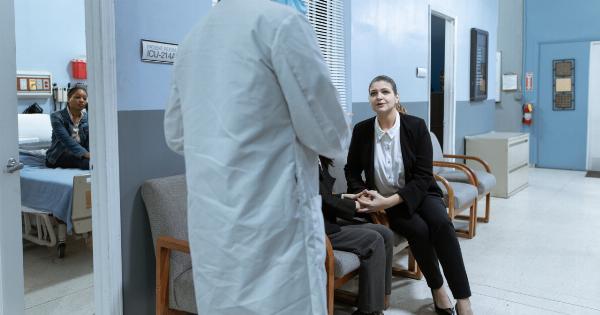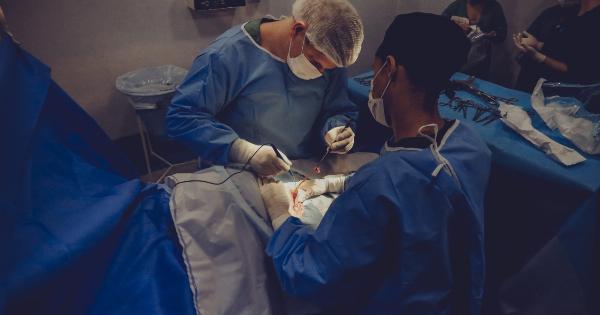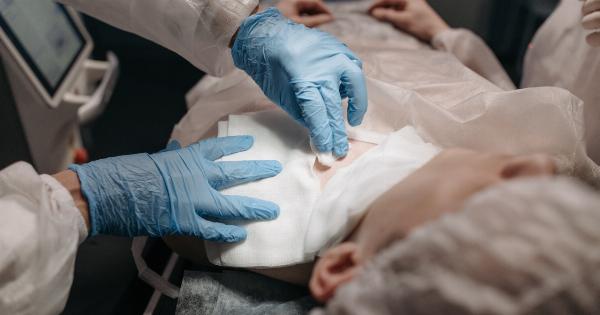Surgery interventions are medical procedures that are designed to restore a patient’s health by removing or repairing a part of the human body.
Though these interventions may be necessary for some patients, they pose significant risks, especially for patients who are vulnerable. These patients may include the elderly, those with pre-existing medical conditions, and those with mental disabilities. The risks associated with surgery interventions for vulnerable patients include:.
Complications during surgery
Complications that occur during surgery can be life-threatening especially for vulnerable patients. These complications may include excessive bleeding, anesthetic reactions, and organ damage.
Doctors and medical staff members are trained to handle these complications, but they can still occur, leading to significant harm.
Infections and wound healing
After surgery, patients are highly susceptible to infections. Even with proper management, the risk of infection is higher for vulnerable patients.
Patients with chronic medical conditions may have a compromised immune system making it difficult for them to fight off infections. Patients with mental disabilities may have difficulty following proper postoperative care and hygiene. Additionally, wound healing may take longer for these vulnerable patients, increasing the risk of infection.
Medication errors
During surgery, the administration of medication is essential. The incorrect administration of medication can be dangerous, especially for vulnerable patients.
Elderly patients may be taking other medications that can interact negatively with medications given during surgery. Patients with mental disabilities may have difficulty communicating with healthcare professionals leading to medication errors. These medication errors can result in adverse reactions, organ damage or even death.
Adverse reactions to anesthesia
Anesthesia is a critical part of any surgical procedure, but it poses risks, especially for vulnerable patients. Patients with pre-existing heart or respiratory conditions may be more susceptible to adverse reactions to anesthesia.
Additionally, elderly patients may experience delayed recovery from the effects of anesthesia, leading to complications and morbidity. Patients with mental disabilities may be more anxious and may require higher doses of anesthesia leading to a higher risk of adverse reactions.
Postoperative cognitive dysfunction
Vulnerable patients may be at risk of postoperative cognitive dysfunction (POCD). POCD is a condition where a patient experiences a decline in cognitive function after surgery.
These patients may experience confusion, difficulty concentrating, and memory problems. POCD can be especially concerning for vulnerable patients with pre-existing cognitive conditions. Though the cause of POCD is not yet understood, studies have shown that patients who have surgery are at a higher risk of developing the condition.
Patient safety during surgery
Ensuring patient safety during surgery is the top priority for medical staff. Vulnerable patients have unique needs that require special attention. Patient safety protocols are designed to minimize risk, but there is always the potential for error.
Patients with mental disabilities may be more agitated and may require additional sedation leading to a higher risk of respiratory complications. Elderly patients may require extra monitoring for postoperative delirium. Medical staff must be aware of the unique risks for vulnerable patients and must provide the necessary care to promote safety.
Long-term impact of surgery
The long-term impact of surgery on vulnerable patients can be significant. Patients may experience chronic pain, reduced mobility, or a decline in their cognitive function.
Elderly patients may experience a decline in their overall health and may require long-term care. Patients with mental disabilities may require additional support to cope with the changes that come with surgery. Medical staff should be aware of these potential long-term outcomes and should provide the necessary care to minimize the risk of harm.
The decision to proceed with surgery
The decision to proceed with surgery for vulnerable patients must be carefully considered. Medical staff should analyze the benefits and risks of the procedure and should take into account the unique needs of the patient.
In some cases, surgery may not be the best option, and alternative treatments may be necessary. Patients must also be involved in the decision-making process; they must understand the risks and benefits of the procedure and must provide informed consent.
Conclusion
Surgery interventions pose significant risks, especially for vulnerable patients.
The risks include complications during surgery, infections, medication errors, adverse reactions to anesthesia, postoperative cognitive dysfunction, patient safety during surgery, and long-term impact. The decision to proceed with surgery must be carefully considered and the benefits and risks analyzed. Medical staff must be aware of the unique needs of patients and provide the necessary care to promote safety and minimize harm.






























